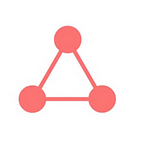By Jake Intrater, Princeton ‘23
In his 1962 book ‘The Structure of Scientific Revolutions,’ philosopher Thomas Kuhn explained his theory of paradigm shifts as a discontinuous jump in belief and/or practice that characterize a true scientific ‘revolution’. His examples include the leap from a geocentric model of our world to Copernicus’ heliocentric one, and also Darwin’s theory of natural selection. The same model can be used to analyze technological developments and their impacts on human lives. It is without a doubt that the advent of personal computers and their importance in all walks of modern life, constitutes a paradigm shift. The way we think about communication, productivity and socialization has changed dramatically.
And yet, even in our increasingly digitized world, with entrepreneurs and coders trained on finding even the smallest possible improvements to the status quo, there exist certain anachronisms. One of those is current note-taking softwares. Consider Google Docs, perhaps the most commonly used note-taking and information-sharing tool. As with handwritten notes, Google Docs is formatted as a set of ‘pages;’ the writing simply goes left to right and then downwards. This interface for taking notes and the visual end-product is nearly identical to what people used 5̵0̵ 500 years ago; rectangular white sheets have simply been projected onto the screen. This need not be the case.
Consider an analogy. In the pre-internet age, encyclopedias were heavy and tedious, consisting of a whole set of books. They were indexed alphabetically, so if you wanted to find an entry that was referenced in another, you would have to search through the entire set. Wikipedia, the online encyclopedia, is streamlined. Articles are hyperlinked directly to each other. Information on Wikipedia is so interconnected that it has been made into a game. Imagine being on the Wikipedia page of the United States and having to retreat to a ‘table-of-contents’ web page and then scroll upwards towards the ‘G’ section to find more information about George Washington. It would have been so absurd to digitize an encyclopedia that it is hard to even picture.
But that is precisely what we did with notes. At Plexus, we push back against linear sequences of bullet points in favor of a graph based model. People are intuitively aware of the limitations of the current note taking paradigm. Taking notes on a conversation — such as the type that would transpire in a college literature seminar — is nearly impossible. The train of the discussion is rarely parallel to the passage of time. People talk over each other and double back to discuss points that were mentioned earlier. Any system that squashes the awesomeness of this type of collaborative learning into a linear set of notes will miss out on crucial connections.
Lectures, meetings, and research are more complicated than lists. Ideas are more complicated than lists. A graph has the potential to represent this complexity visually. Plexus aims to correct this oversight and deliver to people everywhere a way of capturing thoughts that more accurately reflects them.
Jake studies Math and Computer Science at Princeton.
